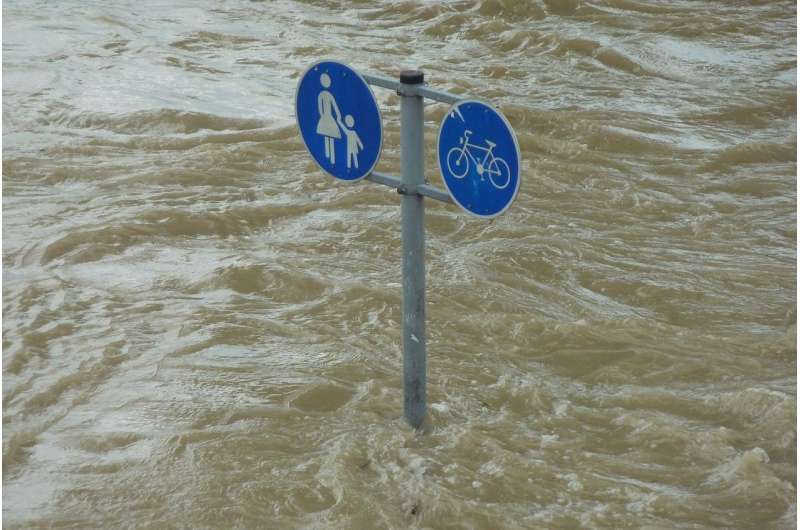Credit: CC0 Public Domain
A research collaboration between Victoria University of Wellington and NIWA is working towards a better method for adapting to coastal flooding as sea levels continue to rise due to climate change.
The research, published in the journal Environmental Research Letters, outlines a system of "signals" and "triggers" that will warn communities when to act to avoid flooding from sea-level rise.
This new research is part of a project led by Dr. Judy Lawrence from Victoria University of Wellington's Climate Change Research Institute, with NIWA and Manaaki Whenua Landcare Research.
Dr. Scott Stephens and Dr. Rob Bell at NIWA with Dr. Lawrence have designed a system for monitoring how frequently storm tides will flood coastal areas on the back of rising sea level. It uses sea-level measurements to date and sea-level rise projections to better pinpoint when storm-tide flooding events will occur too often. The researchers say their system covers a range of scenarios to allow communities to plan ahead to avoid and minimise flooding damage by adapting well before flooding damages affect them.
The researchers are also working on signals and triggers that reflect social, economic, and cultural aspects of flooding as they develop the system further.
"The need for planning to avoid coastal flooding is urgent," says Dr. Stephens. "Our research will help communities to take adaptive action before flooding from rising seas becomes unbearable."
"The next step is to work with councils and communities directly to apply our method," says Dr. Lawrence. "Housing and infrastructure decisions that are being made now will be impacted by climate change-related coastal flooding, so it is important for communities to be able to consider different coastal flooding scenarios in their planning processes."
More information: Scott A Stephens et al. Developing signals to trigger adaptation to sea-level rise, Environmental Research Letters (2018). DOI: 10.1088/1748-9326/aadf96
Journal information: Environmental Research Letters
Provided by Victoria University of Wellington
























